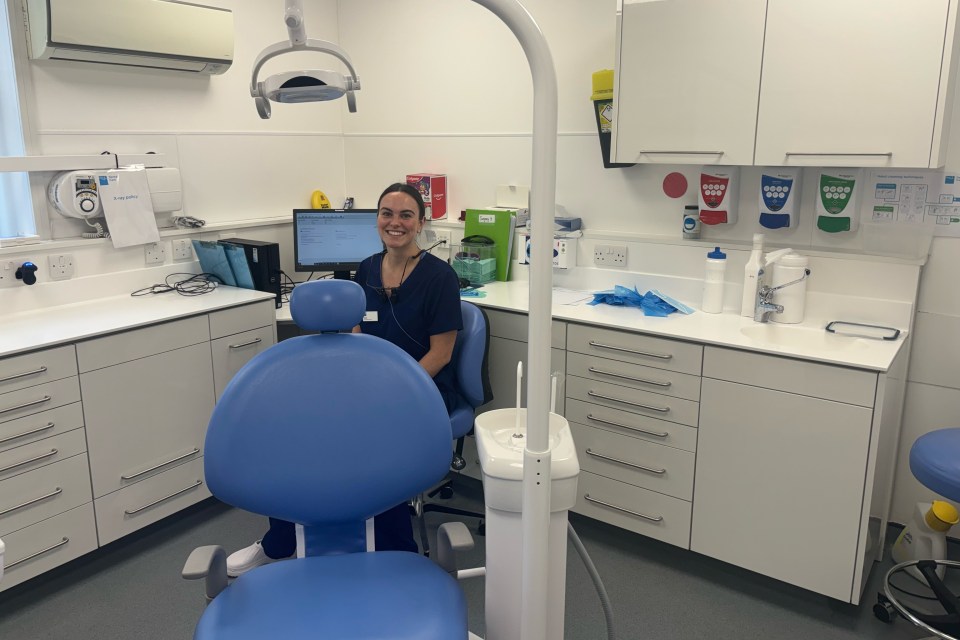21 October 2024 |
4 minutes
Starting Dental Foundation Training (DFT)

Having graduated from Leeds Dental School this year, Alexis Helliwell began her Dental Foundation Training (DFT) a few months ago. Here, our very own Rosie Beaumont sits down with Alexis to see how she’s getting on…
Hi Alexis, thanks for taking the time to chat to me and our readers. So, you started DFT just a few months ago – how’s it going so far?
Navigating the first few weeks of DFT can feel like an intense rollercoaster. Everything is new and exciting, but it can also feel overwhelming.
That said, staying organised, remaining curious and keeping first impressions front of mind have all helped see me through!
Can you tell us a bit more about that?
Firstly, staying organised is crucial. I used a diary to keep track of my daily duties, including key things I had learned and points of reflection I could add to my e-portfolio.
This helped me manage all of the new information and tasks I was given early on. You have a lot less time than you’re used to, so it’s important to prioritise what is needed to be done at different stages.
Secondly, I think it’s important to question everything that you don’t understand. It’s only through asking questions and seeking clarification that you truly grasp the nuances of working in a dental practice in order to find your feet.
Finally, dressing smartly can make a huge difference. While it might seem like a small detail, it’s not just about looking good. It’s about fostering a sense of professionalism and confidence in yourself.
What can a new dentist expect when starting DFT?
Be prepared for a lot of different emotions and a hefty dose of confusion. You will find that excitement is often mixed with anxiety, and the sheer volume of new information can be a lot to take in.
One of the most disorienting aspects is the number of acronyms that seem to populate every conversation and document. It’s not uncommon to feel lost in a sea of abbreviations at first, but remember, this is all part of the learning curve.
Embrace the emotional highs and lows as part of the process, and be kind to yourself as you get accustomed to the new language of DFT. The DFT handbook will be your best friend!
It’s good to remind yourself that everyone is in the same boat and to take support from colleagues. Each day will bring a bit more clarity and confidence.
Can you tell us what you’ve learned so far during DFT?
One of the most profound realisations is that although you have graduated as a dentist, DFT will define who you become as a clinician.
While dental school provides the essential theoretical foundation and technical knowledge, it’s DFT that transforms you from a student into a practicing professional. You can learn how to apply your skills in real-world settings, manage patient care from start to finish and navigate the complexities of clinical practice.
The hands-on experience and patient interactions during DFT are where theory meets practice, allowing you to refine your skills, develop your clinical judgement and embrace the responsibilities of a dentist.
It’s a transformative period where everything you’ve learned becomes integrated, and you start to see yourself as someone who truly embodies the diversity that being a dentist can offer.
Can you tell us something you didn’t expect from DFT?
When I started DFT, I thought I knew what to expect – a clear, structured path from novice to skilled dentist. What I didn’t realise was how much the experience would differ from week to week.
The evolving nature of the programme can be both exciting and challenging. Embracing these changes and being adaptable is crucial. Keep yourself informed and seek advice from your peers, Educational Supervisor and Training Programme Director.
And finally, can you summarise your first few weeks of DFT?
The first few weeks of DFT have been both exciting and exhausting because you’re finally entering working life. This provides a real sense of purpose as you’re using the skills you’ve developed. It’s great to put theory into practice and see patients independently, but this has also been daunting at times.
You are employed now, which means early mornings, long days and a constant influx of new things to remember. You’re guaranteed to leave the day feeling tired! I’ve found that it’s important to maintain a sense of normality throughout this period, whether it’s going to the gym or making time for a hobby I love.
It’s also important to consider the financial strain as you navigate the time before receiving your first wage. You may have a lot of new outgoings, so budgeting carefully is essentially. Be sure to seek out support in this area when it’s needed.
Finally, despite the challenges, the experience has been incredibly rewarding, and I’m sure that, like me, you’ll gradually find your rhythm when you’re in this position.

By Alexis Helliwell
Academic Dental Foundation and Dental Core Trainee
